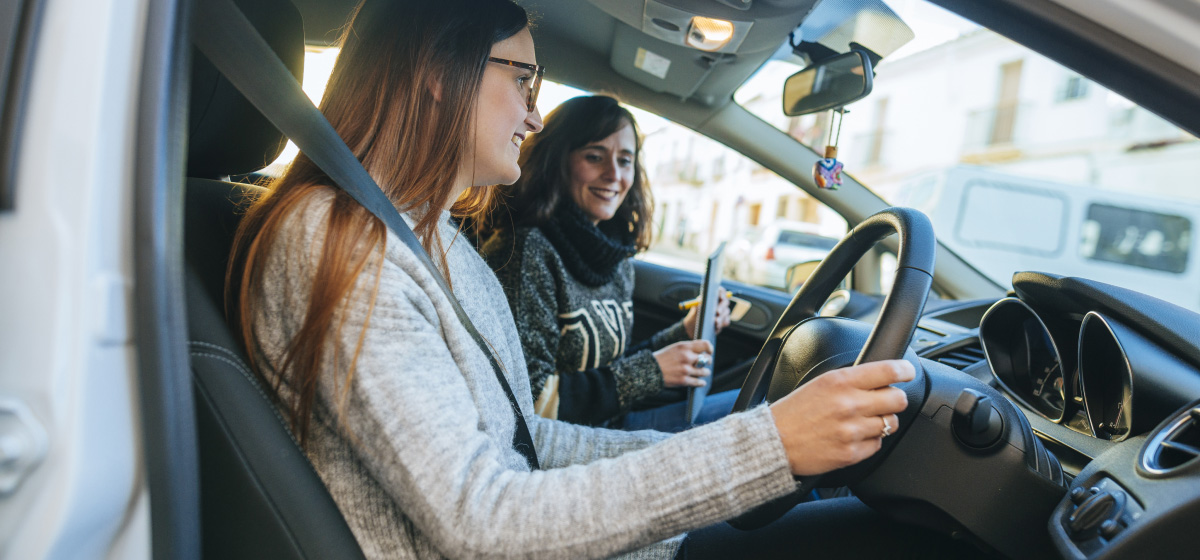If you’re not confident in driving anymore, we can hopefully help you with those nerves.
Regardless of how much experience people have as drivers, it’s always possible to lose confidence. If you’re nervous about getting back behind the wheel – or know someone who is – you may find some of this information useful. Here we’ll look at some of the reasons people may have lost the confidence to drive and potential techniques that could help.
Why have I lost confidence in driving?
There are numerous reasons why people may lose confidence in driving, or find that it brings about anxiety. Many people find it hard to get back in the driver’s seat – or even in a car – after being involved in an accident. Some people leave it too long between bouts of driving and may just need a little push. And some are simply more prone to anxiety than others.
Other reasons can include stress, moving to an unfamiliar area, or failing a driving test– perhaps more than once.
Knowing the reason why you may have lost confidence can be helpful in knowing how to tackle it. But it’s not something we can always put our finger on.
You may have lost confidence in driving post-lockdown, which is understandable. According to a survey conducted by The AA, 11% of drivers feel more nervous than before lockdown, which equates to roughly 3.6 million drivers UK-wide.
How can I be less nervous when driving?
There are a few different strategies you can employ to help with confidence issues around driving. Some may suit you better than others, depending on why you’re lacking in confidence, or what you respond to better more generally. Hopefully you’ll find one that works for you!
Take some refresher lessons.
If you’ve already passed your test, there’s no harm in going back to basics to help get behind the wheel. Whether you’ve grown unfamiliar with the mechanics of driving, or if you just need a little push from someone who really knows what they’re doing, having a few lessons can set you back on the right course.
If you had a positive experience with your original driving instructor, why not drop them a line? Or you could look into refresher driving lessons from the AA, which has highly qualified driving instructors available nationwide.
Get the practise in.
Sometimes, worrying about something is worse than actually doing it. Then it’s a matter of grasping the nettle. Practise, in and it’ll make a big difference to help you build up your confidence. With a little time, you’ll feel more comfortable in the driving seat, and that will help you get back to the level you were once at.
It might be an idea to get someone you trust and are comfortable with to accompany you. If you’re still learning to drive, it’s recommended to get additional practise with a friend or family member anyway.
A great way to get some practise in would be to look at borrowing a parent’s car, or maybe a friend who is very confident in driving. This way, you can practise with someone that you’re really comfortable with..
If you need to borrow their car, then why not check out Veygo’s temporary driving insurance, by doing this, you can get cover for as little as 1 hour! So you can get that practise in.
With this in mind, check out our guide: Should I learn to drive with my parents?
Make it easy on yourself.
Not everyone will benefit from jumping in at the deep end. It’s OK to submerge yourself back into driving gradually.
If you want to ease back into practise, pick a quiet time of day and choose a nice, quiet area. A residential street or an empty car park would be ideal. Check the weather to make sure it’s pleasant for driving, and plan it so you don’t get caught in rush-hour or school-run traffic.
Practise simple manoeuvres to begin with—don’t take on anything too taxing. If it gets too much, pull over somewhere safe to take a break. Take deep breaths in and out, taking breaths from your stomach—not your chest. Make sure you’re fully calm before you resume again.
Whether you’re with an instructor, family member, or friend, it’s OK to ask them to take a time out. Make sure things are going at your speed. And if it really gets too much, it’s fine to ask them to take over.
Get into the right head space
A good frame of mind is important for all drivers, even those with lots of experience. The best time to drive is when you’re well rested and relaxed.
Try to avoid driving or booking your lessons too early in the day. Not only is this useful for dodging the morning traffic, but it gives you a chance to ease into your day. Have a nice breakfast and get ready in your own time. This should have a calming effect on your nerves. You might even consider relaxation techniques such as meditation.
If your confidence has been knocked because you were in a car accident, for example, it may be worth seeking extra help. If you speak to your doctor, they may be able to help. One potential avenue is counselling, which is available on the NHS and can be worthwhile if you’ve had a traumatic experience.
You could also look into specialist post-collision driving courses. Some driving instructors will be specially trained to assist drivers in regaining their confidence following an accident, regardless of who was found to be at fault.
How we can help
Whether you’re a nervous driver or a nervous learner driver, Veygo may have the solution for you. We have temporary car insurance for those nervous drivers. Veygo also covers learner driver insurance, so you can get the practise in while you’re still holding your green licence.
Finally, we offer a guide for those learning to drive with anxiety.
